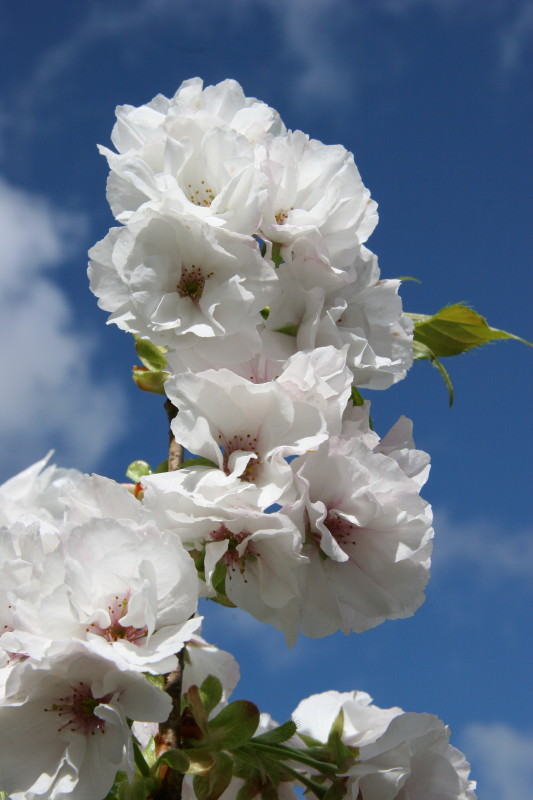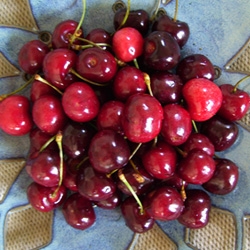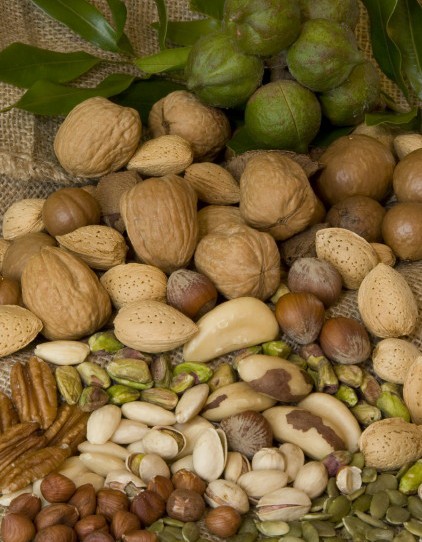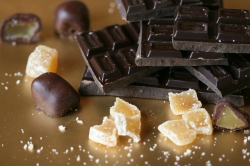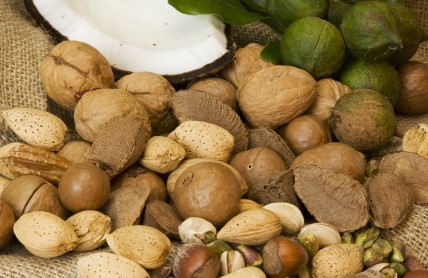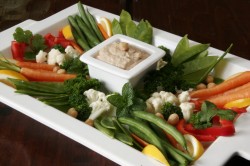Three Cheers for Cherries
Health Benefits
Nutritional Facts
Shopping Tips
The beautiful pink and white blossoms of a cherry orchard joyfully herald a crop that can provide substantial health benefits for just about everyone.
Delicious cherries—beloved by children and grown-ups alike—are one of the oldest cultivated fruits known. Evidence of their cultivation reaches back to around 300 B.C. with their origin thought to be in Central Asia. In the early 17th Century, settlers introduced the fruit to American soil—and today, the U.S. is not only the world’s second largest cherry producer, second only to Turkey, but also is the world’s top exporter of fresh cherries.
Health Benefits
Aside from their delicious variations of taste, according to scientific literature, cherries may offer wide-ranging benefits for our health. Researchers report the possibility the fruit may help to relieve the pain of arthritis and gout with its anti-oxidative and anti-inflammatory effects. Cherries also are believed to have the potential to reduce the symptoms of metabolic syndrome. In addition, cherries may be beneficial for colon, breast, and cardiovascular health. Furthermore, they could slow the aging process and may possess anti-neurodegenerative effects.
Like berries, cherries derive the beautiful shades of red of their skin and flesh from phytochemicals known as anthocyanins. In general, anthocyanins are thought to be powerful anti-oxidants and possess possible anti-inflammatory, cardio-protective, and anti-carcinogenic traits. Interestingly, it has been reported that tart cherries have higher concentrations of anthocyanins than sweet cherries.
Athletes, too, could be beneficiaries of the advantages offered by cherries. A number of small published studies suggest possible health benefits for athletes through the consumption of cherry juice.
One study with 20 participants—18 of whom ran the 2008 London Marathon—analyzed the benefits of tart cherry juice supplementation (Montmorency cherries, two 8 oz. juice bottles per day, equivalent to 50 to 60 cherries each) compared with a placebo on their recovery after a marathon. The participants consumed either the cherry juice or the placebo for five days before the marathon, on race day itself, and then for two days after their 26.2-mile run. The researchers at Northumbria University(1) reported a faster recovery of strength as well as less inflammation in the runners who drank the tart cherry juice in comparison to the runners in the placebo group.
Scientists at the Oregon Health and Science University(2) studied the effects of tart cherry juice in reducing muscle pain during running. They examined 54 runners who took part in the Hood to Coast relay, which involved each athlete running three legs totaling as much as 18 miles, all within a 24-hour time period. For seven days before the race and on race day, each of the runners in the study either consumed 10.5 oz. of tart cherry juice (equivalent to 45 to 50 Montmorency cherries) twice daily or a placebo which appeared to be and tasted as if it were cherry juice. After the race, the group that drank the juice reported a significantly smaller increase in pain than the placebo group.
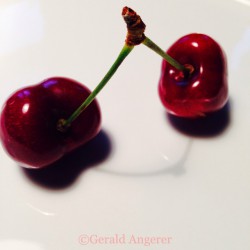
Another small study carried out by researchers at the University of Vermont(3) examined the effect on the symptoms of exercise-induced muscle damage from drinking either a tart cherry juice blend or a placebo. The results were interesting, with a significantly smaller loss of strength as well as less pain development in the cherry juice-drinking group.
Further research has been recommended by those already studying the effects of cherry juice and is ongoing—check the listed studies for cherry juice—in an effort to determine the specific, measurable benefits of cherries for athletes and others.
Nutritional Facts
In addition to contributing health-benefiting phytochemicals to one’s diet, cherries are a good source of Vitamins A and C as well as potassium. In the nutritional facts table(4) provided below, the values are given for one cup of cherries without pits.
| Nutritional Values | Raw Sweet Cherries | Raw Sour Red Cherries |
| Calories | 87kcal | 78kcal |
| Carbohydrates | 22g | 19g |
| Dietary Fiber | 3g | 2.5g |
| Protein | 1.5g | 1.6g |
| Fat | < 1g | < 1g |
| Water | 113g | 134g |
| Vitamins | C | A & C |
| Minerals | Potassium | Potassium, Copper, Manganese |
Shopping Tips
Cherries grown in the U.S. are in season from June to August. They can be purchased fresh, frozen, or dried. Local farmers’ markets are a great provider of the freshest cherries. If you have the option, go ahead and choose the cherries yourself instead of having them handed to you prepackaged. This way you can reject older fruits with soft, dark spots.
Quality characteristics to look for when choosing cherries are a shiny skin, firmness, and a fresh, strongly attached green stem. Ideally consume fresh cherries soon after purchase or refrigerate them immediately as they spoil quickly.
If you like to drink sweet or tart cherry juice, look for kinds that are 100 percent fruit juice or purchase a cherry juice concentrate. If possible, stay away from products that state “made from cherry juice.” Please check the label to avoid added artificial flavors and colors, as well as sugar, high fructose corn syrup, and artificial sweeteners. We like diluting 100 percent cherry juice in a 1-to-1 ratio or a concentrate in a 1-to-5 ratio with still or sparkling water. This makes a very refreshing summer drink and great alternative to sodas. For more information on which water to choose, please visit our article, “Water [Part 2]: Navigating Your Drinking Water.”
And finally, if you fancy a new, exciting treat, we recommend one of our favorites: dried cherries dipped in dark chocolate. For more information on the health benefits of dark chocolate see our article “Chocolate: Should I or Shouldn’t I?“
Enjoy!
Reading Suggestions:
- Explore proper hydration and a few thoughts on summer nutrition: “Summertime Fitness: Part II“
- “Uta’s Summary for Your Marathon Preparation. Part III: Nutrition“
References:
(1) Northumbria University: University News: Marathon runners should pick cherries for speedy recovery. www.Northumbria.ac.uk, April 2010.
(2) Kuehl KS, Perrier ET, Elliot DL, and Chesnutt JC: Efficacy of tart cherry juice in reducing muscle pain during running: a randomized controlled trial. Journal of the International Society of Sports Nutrition May 2010, 7:17.
(3) The University of Vermont: Cherry Conditioning. www.UVM.edu, July 2006.
(4) Nutrient Data Laboratory: USDA National Nutrient Database for Standard Reference, Release 24: Agricultural Research Service 2011: U.S. Department of Agriculture: Raw Sweet Cherries, Raw Sour Red Cherries. www.ARS.USDA.gov, retrieved July 2012.
Updated July 1, 2016
Updated May 20, 2015
Updated July 10, 2012
Posted July 2008
- Posted July 30, 2013
© Copyright 2008-2024 by Take The Magic Step®. All Rights Reserved.
